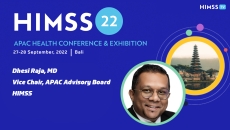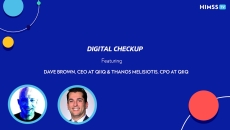Artificial Intelligence
A natural language processing expert explains why he feels the technology's kinks have been ironed out, its ROI has been proven and the timing is right for healthcare to take advantage of information-extraction tools.
In this special episode, recorded live in Boston at the HIMSS Healthcare Cybersecurity Forum, Roshal Marshall of McKesson discusses this and other issues, including AI integrity and information blocking rule compliance.
These advanced technologies will do more to help provider organizations with workflow optimization, staff shortages and the patient experience in the year ahead, one expert predicts.
Also, the Japanese government is conducting a study to deploy an AI endoscopy diagnosis support tool in Vietnam.
A letter from the HIMSS EHR Association outlines concerns and requests clarifications around issues such as automation bias and how the industry would transition away from legacy technologies that conflict with the guidance.
A healthcare AI expert offers a deep look into how these technologies can get to illnesses before they become severe, and help solve SDOH problems that cause inequities in healthcare.
Greg Miller, chief growth officer at health IT vendor Lumeon, says manual methods for coordinating, verifying and advancing steps in a patient's clinical journey are leading to burnout for providers.
To fully realize the benefits of AI in healthcare, it is important for hospitals to pursue systemic changes, with pop health management as an end goal, says Dr. Dhesi Raja, vice chair of the Board of Advisory at HIMSS Asia-Pacific.
It does this by leveraging an AI tool that reads patients' histories and doctors' notes in real time.
Artificial intelligence can help relieve clinicians' administrative burden so they can devote more time to direct patient care, say Dave Brown and Thanos Melitsiotis of QiiQ.








